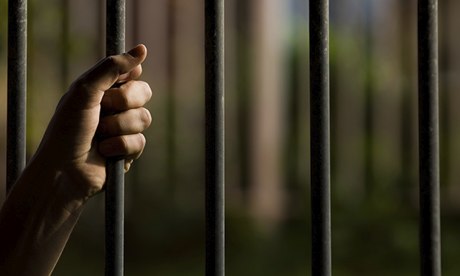Government Grants
Business Grants
Home Owner Programs
Federal Programs
About Us
BJA FY 13 Wrongful Conviction Review Program
One of BJAs guiding principles is to promote a fair criminal justice system.
Over the past two decades, the American justice system has been confronted with a steady stream of post-conviction exonerations, and the issue of wrongful convictions has emerged as a critical area for examination, innovation, and reform of criminal justice practices and policies.While experts widely acknowledge that wrongful convictions constitute a small percentage of all findings of guilt by our nations courts, irreversible damage is sustained by those who are wrongly accused, convicted, and incarcerated.
This damage extends far beyond the individual wrongfully convicted citizen, as these systemic errors harm all those involved in the case in question to include the families of the wrongfully convicted person, the victim of the original crime in question, and law enforcement and prosecutorial staff involved in the case.
In addition, wrongful convictions impact public safety by delaying or preventing the identification of the true perpetrators of these crimes.BJA is committed to assisting state and local law enforcement entities in adopting evidence-based practices and accessing the necessary technologies to reduce the likelihood of a wrongful arrest, prosecution, and conviction from occurring from the outset of each criminal investigation.
BJA is also committed to ensuring that wrongful convictions are expeditiously detected and addressed when they occur.In support of the latter goal, BJA established the Wrongful Conviction Review Program, the funding for which is anticipated through the FY 2013 appropriation.
The purpose of this program is to provide high-quality and efficient representation for potentially wrongfully convicted defendants in cases of post-conviction claims of innocence.
Over the past two decades, the American justice system has been confronted with a steady stream of post-conviction exonerations, and the issue of wrongful convictions has emerged as a critical area for examination, innovation, and reform of criminal justice practices and policies.While experts widely acknowledge that wrongful convictions constitute a small percentage of all findings of guilt by our nations courts, irreversible damage is sustained by those who are wrongly accused, convicted, and incarcerated.
This damage extends far beyond the individual wrongfully convicted citizen, as these systemic errors harm all those involved in the case in question to include the families of the wrongfully convicted person, the victim of the original crime in question, and law enforcement and prosecutorial staff involved in the case.
In addition, wrongful convictions impact public safety by delaying or preventing the identification of the true perpetrators of these crimes.BJA is committed to assisting state and local law enforcement entities in adopting evidence-based practices and accessing the necessary technologies to reduce the likelihood of a wrongful arrest, prosecution, and conviction from occurring from the outset of each criminal investigation.
BJA is also committed to ensuring that wrongful convictions are expeditiously detected and addressed when they occur.In support of the latter goal, BJA established the Wrongful Conviction Review Program, the funding for which is anticipated through the FY 2013 appropriation.
The purpose of this program is to provide high-quality and efficient representation for potentially wrongfully convicted defendants in cases of post-conviction claims of innocence.
Obtain Full Opportunity Text:
Full Announcement
Additional Information of Eligibility:
Eligible applicants are limited to public and non-profit organizations with missions dedicated (in whole or in part) to exonerating the innocent, state or local public defender offices, and institutions of higher learning.
Full Opportunity Web Address:
https://www.bja.gov/Funding/13WrongfulConvictionSol.pdf
Contact:
For assistance with any other requirement of this solicitation, contact the BJA Justice Information Center at 1-877-927-5657, via e-mail to JIC@telesishq.com, or via live web chat at www.justiceinformationcenter.us.
Agency Email Description:
Technical Application Support
Agency Email:
JIC@telesishq.com
Date Posted:
2012-12-06
Application Due Date:
2013-02-06
Archive Date:
2013-03-08
Social Entrepreneurship
Spotlight
5 P’s of Social Entrepreneurship
Monika Mitchell, founder of Good Business New York, asks, Do You Have What it Takes to Be a Social Entrepreneur? She lists down the five P’s essential in every entrepreneur: Passion. Purpose. Plan. Partner. Profit.

